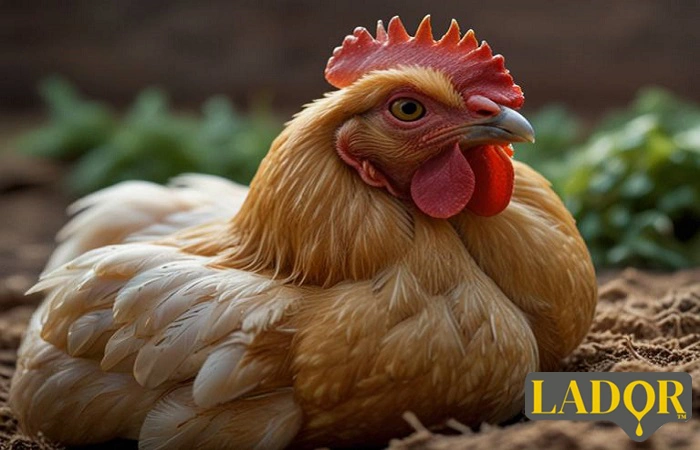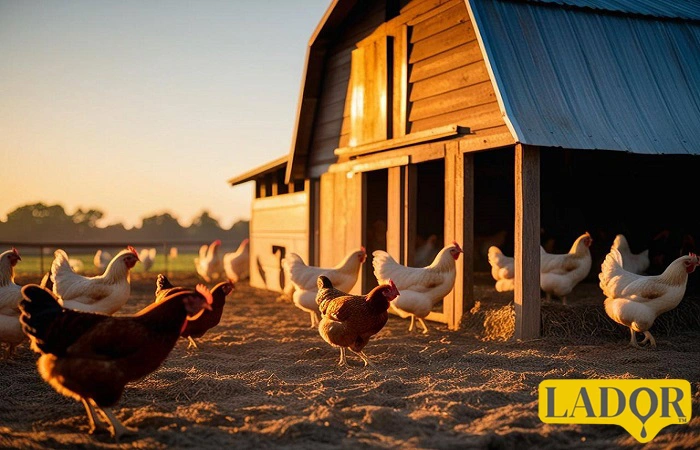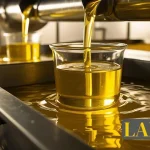Broiler chicken feed is a precisely formulated blend of nutrients designed to promote these birds’ rapid growth and optimal health. It is typically offered in pellet, mash, or crumble form, each with its unique advantages. In this article, we will delve into the components, production methods, benefits, and more regarding broiler chicken feed.
Key Components of Broiler Chicken Feed
- Corn: The primary source of energy and carbohydrates.
- Soybean meal: A rich source of protein for muscle growth.
- Corn gluten meal: Improves feed quality and aids in better digestion.
- Essential amino acids: Such as methionine, lysine, and threonine, are vital for tissue growth and development.
- Vitamins and minerals: Essential for overall health and proper bodily function.
- Fats: Provide energy and serve as carriers for fat-soluble vitamins.
- Additives: Including enzymes, probiotics, and antioxidants, to enhance digestion, boost the immune system, and reduce stress.
Importance of Feed Formulation
The formulation of broiler chicken feed must be tailored to the age, breed, and environmental conditions of the birds. Generally, feed for younger chicks contains higher levels of protein and energy compared to feed for older birds.
Benefits of Using Formulated Broiler Chicken Feed
- Rapid and uniform growth: By meeting all the nutritional needs of chickens, their growth is optimized.
- Improved carcass quality: High-quality feed results in higher-quality chicken meat.
- Reduced mortality: By strengthening the immune system and improving overall health, mortality is reduced.
- Improved production efficiency: With increased weight gain and reduced feed consumption, production efficiency is increased.
Differences Between Broiler Chicken Feed and Chick Feed
Both broiler chicken feed and chick feed are designed to nourish these birds, but due to differences in nutritional needs at various stages of growth, their formulations also differ.
Chicks
In the early stages of growth, chicks require high levels of energy and protein to grow rapidly. Therefore, chick feed typically contains higher amounts of high-quality proteins, vitamins, and minerals. Additionally, the particle size of chick feed is smaller to be easily swallowed by their small beaks.
Broiler Chickens
As chickens age and enter the rapid growth phase, their needs for energy and protein change. Broiler chicken feed usually contains less protein than chick feed but must still meet all their nutritional requirements. Also, the particle size of the feed becomes larger to aid in better digestion.

Impact of Feed on Chicken Meat Quality
The type and quality of feed consumed by chickens have a direct impact on the quality of the meat produced. High-quality feeds containing all the essential nutrients result in meat with a better taste, softer texture, and lighter color. Additionally, feeds containing antioxidants and other nutrients can increase the shelf life of the meat and improve its quality.
Factors Affecting Feed Consumption in Broiler Chickens
Numerous factors influence the amount of feed consumed by broiler chickens, including:
- Chicken age: Younger chicks consume more feed due to a higher metabolism.
- Chicken breed: Different chicken breeds have varying nutritional needs.
- Environmental conditions: Temperature, humidity, and ventilation affect feed consumption.
- Feed quality: Higher quality feeds generally stimulate better appetites in chickens.
- Chicken health: Diseases and infections can reduce appetite and consequently, feed consumption.
- Feeding management: Feeding time and method, particle size of the feed, and unrestricted or restricted access to water and feed also impact feed consumption.
Differences Between Broiler Chicken Feed and Layer Chicken Feed
Broiler chicken and layer chicken feeds have fundamental differences due to their distinct breeding purposes.
- Protein: Broiler chickens require more protein for rapid muscle growth, while layer chickens need less but higher quality protein for egg production.
- Energy: Broiler chickens need more energy for rapid growth, whereas layer chickens require a balanced energy level to maintain egg production.
- Calcium: Layer chickens need more calcium to form eggshells.
- Vitamins and minerals: The ratio and type of vitamins and minerals in these two types of feed differ to meet the specific needs of each group.
Signs of Nutrient Deficiencies in Broiler Chickens
Nutrient deficiencies in broiler chickens can manifest in various symptoms, including:
- Reduced growth: One of the most obvious signs of nutrient deficiency is a decrease in the growth rate of chickens.
- Feather changes: Dull, brittle feathers and feather loss can indicate a deficiency in vitamins and minerals.
- Skin problems: Scaly skin, redness, and inflammation can signal a deficiency in vitamins and minerals.
- Weakness and lethargy: A lack of energy and nutrients can cause weakness and lethargy in chickens.
- Behavioral changes: Decreased appetite, aggression, and reduced activity can be signs of nutrient deficiencies.
- Skeletal problems: Soft bones and deformed legs can indicate a calcium and phosphorus deficiency.
Methods to Improve Digestion in Broiler Chickens
Improving digestion in broiler chickens can contribute to increased efficiency and overall health. Some methods to enhance digestion include:
- Using probiotics: Probiotics are beneficial gut bacteria that aid in improving digestion and strengthening the immune system.
- Adding enzymes: Enzymes help break down food in the intestines and improve nutrient absorption.
- Providing clean and ample water: Clean and sufficient water is essential for proper digestion.
- Balanced nutrition: A balanced diet with all essential nutrients contributes to improved digestive function.
- Reducing stress: Stress can negatively impact digestive function, so reducing stressors like noise and temperature changes is important.
- Using appropriate bedding: Clean and dry bedding helps reduce the incidence of intestinal diseases.

- Water is one of the most important factors affecting the growth and health of chickens.
- Feed should be provided regularly and during the cooler hours of the day.
- The rearing environment should be clean and hygienic to prevent disease.
- Consult with a nutritionist to select the best feed and feeding program for your flock.
Summary
Proper nutrition for broiler chickens plays a crucial role in the success of their rearing. By choosing high-quality feed and following nutritional principles, you can achieve the best results.
Broiler feed is very important, and paying attention to it leads to increased chick weight and improved meat quality. Eala Sepahan Oil Factory, under the brand name Lador, with modern machinery, experienced specialists, and years of activity in this field, produces oils and industrial and animal powders, as well as raw materials for preparing feeds such as broiler feed, quail feed, horse feed, laying hen feed, hydrogenated chicken oil, tallow for soap making, 30 to 35 percent fat powder, and various other products. For price inquiries and consultation with our experts, please contact us at Ladorfat Company.



